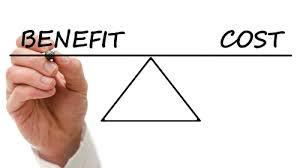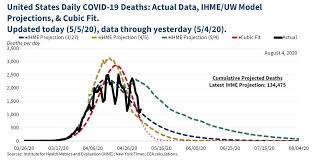Environmental Science
Environmentalists v. Cost-Benefit Analysis: What Does the Future Hold?
For now, at least, environmentalists and economists are aligned in criticizing Trump’s rollbacks. Will this alliance last?
If it’s true that “the enemy of my enemy is my friend,” environmentalists might want to take another look at cost-benefit analysis. The Trump Administration is certainly doing its best to gut economic analysis of its rollbacks. Both economists and environmentalists are resisting. Is this an alliance of convenience or will it be the start …
Continue reading “Environmentalists v. Cost-Benefit Analysis: What Does the Future Hold?”
CONTINUE READINGA New Report on Governing Climate Geoengineering
I suggest steps toward global governance of carbon dioxide removal and solar geoengineering
A new report on the governance of climate geoengineering — that is, carbon dioxide removal (CDR) and solar geoengineering (or solar radiation modification, SRM) — has been released. International Governance Issues on Climate Engineering: Information for Policymakers was coordinated and issued by the International Risk Governance Center, edited by IRGC’s Marie-Valentine Florin, and commissioned by the …
Continue reading “A New Report on Governing Climate Geoengineering”
CONTINUE READING(Still More) Bad News on the Doorstep
New Reports Document Accelerating Wildlife Extinctions, Global Deforestation Trends
While public attention in recent weeks and months has understandably focused on the COVID-19 pandemic and the racial justice shockwaves triggered by George Floyd’s tragic death, another disaster continues apace. This week the New York Times published two alarming stories documenting the accelerating decline of our global environment. The first, entitled “Extinctions Are Accelerating, Threatening …
Continue reading “(Still More) Bad News on the Doorstep”
CONTINUE READINGTrees Will *Not* Solve Climate Change
The authors of a controversial, influential paper backtrack — again
Last summer, I pointed to a then-new paper in Science that concluded that planting trees could remove two-thirds of historical anthropogenic carbon dioxide emissions from the atmosphere at very low costs. At the time, I characterized the claims in it and the associated media communications as “misleading, if not false, as well as potentially dangerous.” …
Continue reading “Trees Will *Not* Solve Climate Change”
CONTINUE READINGUsing and Abusing Models: Lessons from COVID-19
We’ve seen some great examples of how NOT to deal with models.
Models have figured heavily in government responses to the coronavirus. This has given us the opportunity for a real-time lesson in the uses of models. In the process, we’ve learned some important lessons in how to best make use of models — and equally importantly, in how not to use them. That’s directly relevant to …
Continue reading “Using and Abusing Models: Lessons from COVID-19”
CONTINUE READINGWhat’s the Matter With Bill de Blasio?
The Progressive-Leaning Democrat has more in common with Donald Trump than you might think.
Willful bungling of the coronavirus crisis cuts across ideologies and political parties. That’s the lesson that we learn from the story of Bill de Blasio. He is very different, across many different dimensions, than Donald Trump. But it turns out that he shares something important with Trump: a tendency to place personality over expertise. De …
Continue reading “What’s the Matter With Bill de Blasio?”
CONTINUE READING100 Law Professors Urge EPA to Withdraw Revamped “Transparency in Science” Rule
EPA’s new proposal would go beyond even the far-reaching original to limit agency use of the best science
Today, on behalf of 100 environmental and administrative law professors affiliated with 70 universities in 33 states and the District of Columbia, Sean Hecht and I filed a comment letter urging EPA to withdraw its updated proposal to limit the use of science in agency decisionmaking processes, misleadingly named the “Strengthening Transparency in Science” rule. …
Continue reading “100 Law Professors Urge EPA to Withdraw Revamped “Transparency in Science” Rule”
CONTINUE READINGWe Need an Environmental Dr. Fauci
Much of environmental law is about protecting public health. But the Trump Administration won’t listen.
During the coronavirus crisis, Dr. Anthony Fauci has become the voice of reason. Much of the public turns to him for critical information about public health, while even Trump finds it necessary to listen. In the Trump era, no one plays that role in the environmental area. The result is a mindless campaign of deregulation …
Continue reading “We Need an Environmental Dr. Fauci”
CONTINUE READINGThe Epstein Affair
A prominent law prof got COVID-19 numbers disastrously wrong. Then things got worse.
The New Yorker recently published a devastating interview with law professor Richard Epstein. He had attracted their notice by publishing two columns on the Hoover Institution website, the first projecting a total of 500 U.S. deaths from the coronavirus (later raised to 5000), and the second defending his work. I don’t see any need to …
Continue reading “The Epstein Affair”
CONTINUE READINGPolticial Bias Versus Scientific Integrity: An Empirical Test
What the effort to pack the EPA’s Scientific Advisory Board can teach us.
Many people distrust environmental science, though for different reasons. Progressives may discount science that they see as supporting business interests. Meanwhile, conservatives may think scientists come to “politically correct” conclusions in order to get grants. It’s reasonable to think that these things may sometimes happen. But how strong are these effects? Unwittingly, the Trump Administration …
Continue reading “Polticial Bias Versus Scientific Integrity: An Empirical Test”
CONTINUE READING












